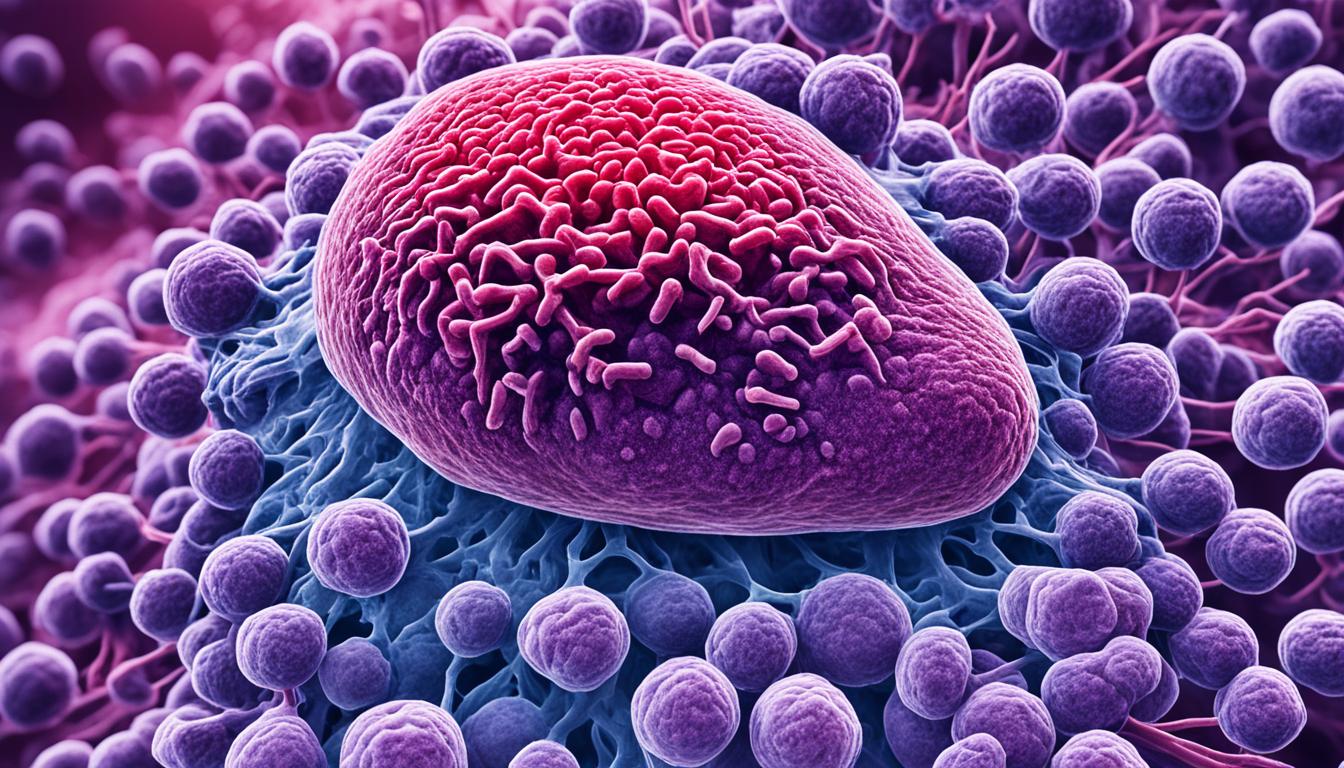Hepatocellular carcinoma (HCC) is the most common type of liver cancer. It comes from the main liver cells and makes up more than 80% of liver cancer cases worldwide. This cancer is a big worry for health experts because it causes a lot of sickness and death.
The US five-year survival rate for HCC is just 19.6% on average. For cancer that has spread far, it can be as low as 2.5%. Treatments for early HCC include surgery and other local treatments. But most cases are found too late for these treatments to work.
For these late cases, drugs called tyrosine kinase inhibitors (TKIs) are the best choice. But they help only about 30% of patients and don’t improve life expectancy by much. HCC is very diverse, so treatment plans are based on the cancer’s stage and the patient’s health. Scientists use new “omics” techniques to understand HCC better. This helps develop targeted treatments. Stem cell therapy is an exciting new treatment showing early positive signs.
Key Takeaways:
- Hepatocellular carcinoma (HCC) is the most common liver cancer type.
- It leads to high sickness and death rates.
- Treatment choices depend on cancer stage and health condition.
- New “omics” tools have improved HCC understanding.
- Stem cell therapy is a promising new treatment for HCC.
Epidemiology of Hepatocellular Carcinoma
Hepatocellular carcinoma (HCC) is a big health problem around the world. It varies in how often it happens and how many people die from it in different places. Globally, it ranks as the fifth most common cancer and the fourth top cause of cancer deaths.
When it comes to getting HCC, men are at higher risk than women. This risk is around 2.8 times more for men worldwide. Despite this, HCC takes the fourth spot in cancer deaths for women. For them, it’s actually the ninth most common type of cancer.
The leading causes of HCC are infections from viruses like hepatitis B and C. These diseases are a big part of why HCC occurs, making up most new cases. Other things that increase the risk include fatty liver disease, diabetes, drinking a lot of alcohol, and being very overweight. These factors are important to target in efforts to lower HCC rates.
It’s not just viruses that lead to HCC. Things like fatty liver disease, diabetes, drinking, and being obese also matter. It’s essential to focus on preventing and controlling these factors to fight HCC effectively.
Epidemiological Statistics:
| Statistic | Value |
|---|---|
| Global Incidence of HCC | 5th most common cancer worldwide |
| HCC Mortality | 4th leading cause of cancer-related deaths |
| Gender Disparity | Men at higher risk (2.8:1 incidence ratio) |
| HCC in Women | 4th leading cause of cancer deaths despite being 9th most common cancer |
| Main Risk Factors |
|
| Viral Infections Contributions |
|
Studying HCC’s spread and the risks involved helps us plan better ways to stop it and find it early. This understanding is key to lessening HCC’s impact on health worldwide.
Diagnosis and Treatment of Hepatocellular Carcinoma
Diagnosis of hepatocellular carcinoma (HCC) uses many tools. Clinical checks, imaging, and biomarkers are key. Tests like ultrasound, CT, and MRI find and study liver tumors. AFP, a blood test, can show high levels in HCC. But, it’s not always just for this type of cancer. A biopsy helps confirm HCC and learns more about the tumor.
Staging HCC is crucial for choosing the best treatment. The BCLC system is often used. It guides what to do based on the stage and the patient’s health. For early HCC, surgeries, transplants, and some therapies cure it. For a mid-stage, TACE might be used. With advanced cancer, drugs and immunotherapy are some options.
Stem cell treatment is new and could change how we treat HCC. It looks hopeful from early studies. But, which treatment to pick is based on each person. A team of doctors works together to choose the best plan for the patient.

